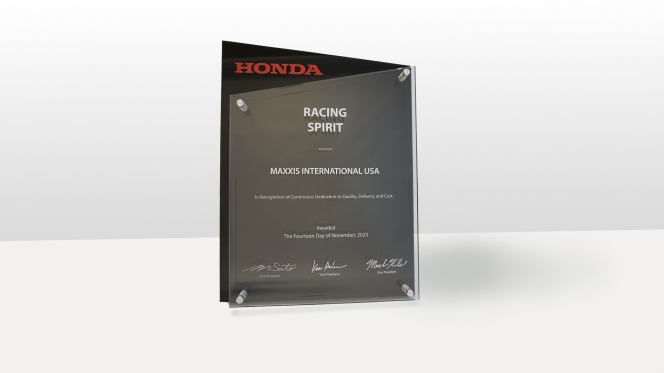Post Reorganisation, Nynas Sets to Expand Business, Sees Larger Opportunities in E-Mobility
- By Sharad Matade
- May 05, 2021

After the completion of a reorganisation process, Nynas, a Swedish manufacturer of speciality naphthenic oils and bitumen products, aims at increasing its market share globally with the continuous focus on its core business. Now the company has a strong balance sheet with a 5-year secured financing. Bo Askvik, Nynas President & CEO, in an interview with Sharad Matade, said, “We have long-term financing in place, giving us the necessary financing to build volumes and increase sales turnover. With the current financial position, we are now focusing on taking back market share across all our different segments and businesses. The reorganisation also required us to focus on the things we were managing and better control the business. We are now back in the normalised operational mode that enables us to focus on supply reliability.” He also shared his view on opportunities in new mobility and lowering the supply of Group I base oils.
 Last year was a challenging year for Nynas. The company went through a reorganisation process amid pandemic challenges. In January this year, the reorganisation was formally completed. Recalling last year’s challenges, Bo Askvik, Nynas President & CEO, said, “Like many other industries, we were impacted by the slowdown due to the global pandemic. The reorganisation process which was in place all of last year restricted our possibilities of supply somewhat. But we managed to maintain most supplies for our customers and operations during the last year.”
Last year was a challenging year for Nynas. The company went through a reorganisation process amid pandemic challenges. In January this year, the reorganisation was formally completed. Recalling last year’s challenges, Bo Askvik, Nynas President & CEO, said, “Like many other industries, we were impacted by the slowdown due to the global pandemic. The reorganisation process which was in place all of last year restricted our possibilities of supply somewhat. But we managed to maintain most supplies for our customers and operations during the last year.”
Surprisingly, Nynas managed to do better- than -the industry in 2020. The tyre oil industry, as per a report, had a volume loss of around 14 percent across all segments, whereas the company’s sales were down by six and a half percent in the comparable geographic regions. In the Asian region, Nynas managed to maintain its 2019 sales level, while sales in central Eastern Europe, Middle East, India, and Africa witnessed an uptick.
Askvik said, however, though Nynas may not witness sales of the pre-pandemic levels this year, the company, with its long-term business plans, will continue to focus on its core products to support the growth of the industry.
Nynas AB is a Swedish manufacturer of specialty naphthenic oils and bitumen products. It produces bitumen for paving and industrial applications, transformer oils, base oils, process oils, and tyre and rubber oils. The company has three refineries under its own management – in Nynäshamn and Gothenburg in Sweden, and in Harburg Germany and a bitumen refinery in the UK operated as a 50/50 joint venture between Nynas and Shell, as well as application labs for bitumen, greases, adhesives, rubber and the electrical industry.
 In 2017, the US imposed sanctions on Nynas, and additional sanctions in 2019 restricted the company to procure heavy crude oil from Venezuela. Nynas applied for company reorganisation on December 13, 2019, after its banks did not extend the loans. The US lifted sanctions on Nynas AB in May 2020 after the ownership restructuring, which resulted in Petróleos de Venezuela SA’s stake reducing from 50 percent to 15 percent. An independent Swedish foundation now controls the divested stake.
In 2017, the US imposed sanctions on Nynas, and additional sanctions in 2019 restricted the company to procure heavy crude oil from Venezuela. Nynas applied for company reorganisation on December 13, 2019, after its banks did not extend the loans. The US lifted sanctions on Nynas AB in May 2020 after the ownership restructuring, which resulted in Petróleos de Venezuela SA’s stake reducing from 50 percent to 15 percent. An independent Swedish foundation now controls the divested stake.
The reorganisation somehow proved to be a boon for Nynas. The Swedish company is now no longer restricted by the reorganisation regulations and can again hedge oil prices and currency exposures. The company reached a composition agreement with the creditors resulting in a 5-year secured financing and a strong balance sheet. The company has already obtained the necessary permits from the authorities needed for running new feedstocks, which secure supply.
“Now we have a solid balance sheet, much stronger than what Nynas had for many years. We have long-term financing in place, giving us the necessary financing to build volumes and increase sales turnover. With the current financial position, we are now focusing on taking back market share across all our different segments and businesses. The reorganisation also enabled us to focus on the things we were managing and better control the business. We are now back in the normalised operational mode that enables us to focus on supply reliability. And that’s what customers are looking for. Now we have the same challenges the industry is facing at large, which is COVID-19,” said Askvik.
Despite the challenging time, Nynas remained aggressive on product launches to cater to its customers and markets worldwide. Askvik added, “We launched a series of new products, including the biobased products, and improved our existing products. So, we never lost our focus on developing the business.”
Askvik attributes the successful reorganisation to the company brand, loyal customers, and employees.
Disruptions in shipments is also another major challenge for any company in the current circumstance. Shipment durations have gone up with increasing costs. However, Nynas has always been at the forefront to have a superior supply chain worldwide to serve its customers. Currently, it has 44 depots globally, of which Antwerp, Houston and Singapore are central storage facilities and blending stations. “We have a firm base in the supply chain structure. We focus on how we can be most efficient and maximise shipments to reduce costs per tonne,” said Askvik.
Growing demand for technical higher refined base oils and increasing production cost are accelerating the closure of traditional Group I plants. In 2011, Group I represented about 57% of base oil production capacity, which had dropped to 37% in 2019. However, for tyre applications, highly refined paraffinic Group II and III oils cannot substitute Group I and it´s derivatives due to limitations in viscosity range and chemical composition differences. “Naphthenic oils provide the solvency and polymer compatibility that group II and group III base oil cannot provide,” explained Askvik. “We always look at bringing value to the tyre and rubber applications”.
 The Nynas executive sees that the faster-than-expected adoption of electrification will bring more business opportunities to the company. Though the number of rubber and oil products will reduce in EVs, Nynas bets on its solutions for lubricating greases and metalworking fluids for the different parts in the EVs. “We see a balanced substitution in the electrification of vehicles. Of course, electric vehicles will still be needing tyres for the foreseeable future. Apart from that, we must bear in mind that there are two types of batteries in electric vehicles. You still have a starter battery of the ICE vehicles in the electric vehicles. Where again, our naphthenic oils are an excellent tool to control both, the production as well as the properties of the isolating membranes used in that type of batteries,” said Askvik.
The Nynas executive sees that the faster-than-expected adoption of electrification will bring more business opportunities to the company. Though the number of rubber and oil products will reduce in EVs, Nynas bets on its solutions for lubricating greases and metalworking fluids for the different parts in the EVs. “We see a balanced substitution in the electrification of vehicles. Of course, electric vehicles will still be needing tyres for the foreseeable future. Apart from that, we must bear in mind that there are two types of batteries in electric vehicles. You still have a starter battery of the ICE vehicles in the electric vehicles. Where again, our naphthenic oils are an excellent tool to control both, the production as well as the properties of the isolating membranes used in that type of batteries,” said Askvik.
Increasing demand for lower rolling resistance in tyres, which leads to improving fuel economy and reducing CO2 emission, for ICE-driven engine vehicles will extend to electric vehicles as well, said Askvik. “Another element where we have good offering is when it comes to winter performance. That’s a core value of all our products with their performance in lower temperatures.”
To meet the demand for non-mineral oil-based products, Nynas introduced NYTEX BIO 6200, the company’s first tyre and rubber process oil to be produced using renewable feedstock to support its customers reaching their sustainability goals without sacrificing critical technical properties. “When we developed this bio-based tyre oil, we did not want to compromise on the things that Nynas stands for, and that are quality, consistency and performance. We are, I think, one of the few truly global tyre oil suppliers that understand the requirement for consistent quality. NYTEX BIO 6200 is a product that combines all the key benefits of naphthenic oil with low rolling resistance and the winter performance with the bio base component,” explained Askvik.
In the future, Nynas will continue to focus on sustainable products and regulatory demand for safe tyre oils and substitution for Group I oil products. Region-wise, Askvik bets high on the APAC region, a hub of tyre and vehicle manufacturing. “ For us, we will continue to focus on product development to launch new products and increase the performance of our existing products. We are into niche segment whereas, for our competitors, tyre oils and bitumen are very small part of their business. We offer the customer our technical competence and help them improve their products and we consider this as both challenges and opportunities.” (TT)
Maxxis Receives 2025 Racing Spirit Award From Honda
- By TT News
- March 04, 2026

American Honda Motor Company has honoured Maxxis with its 2025 Racing Spirit Award, recognising the tyre manufacturer's exceptional performance as a supplier. This accolade acknowledges Maxxis’ consistent ability to meet Honda’s stringent requirements regarding product quality, punctual delivery and cost efficiency.
The two companies have maintained a strong partnership since 2005, when Maxxis first began supplying original equipment tyres for Honda’s powersports division. Today, Maxxis tyres are fitted to popular Honda models such as the FourTrax Foreman Rubicon 4x4 and the Pioneer SxS. Expressing his gratitude, Andy Lee, President of Maxxis International – USA, conveyed that the entire organisation feels deeply honoured by the recognition. He attributed the achievement to the dedicated efforts of Maxxis employees, whose daily commitment ensures excellent products and service for their long-standing partner. Lee also reaffirmed the company’s dedication to upholding Honda’s expectations in the years ahead.
Lee said, “I know I speak for everyone at Maxxis when I say that we are truly honoured and delighted to receive this award. I’m also proud of the Maxxis employees who work hard every day to deliver excellent equipment and service to our OE partner of more than 20 years. We thank Honda and look forward to continuing to meet their expectations in 2026 and beyond.”
Michelin Introduces XHA3 Earthmover Tyre At ConExpo 2026
- By TT News
- March 04, 2026

Michelin North America, Inc. has launched the Michelin XHA3 tyre at ConExpo 2026. The product is the next generation in the company’s loader and grader range, succeeding the XHA2 model.
The XHA3 replaces several previous lines, including the XHA2, XADN+, XAD65 and XLD. According to the company, this launch represents its most significant innovation in the earthmoving segment in over a decade.
The new tyre has been engineered to meet the requirements of modern construction machinery, which now operate with higher loads and longer duty cycles. The XHA3 features increased load capacity and improved tonne-kilometre-per-hour (TKPH) performance compared to its predecessor.
It is built to carry heavier loads for modern earthmoving equipment. A new tread pattern engineered for durability and traction in loader and grader applications. It is designed to increase TKPH performance and extend tyre life. Aimed at reducing the total cost of ownership for fleet operators.
Yahn Heurlin, VP of Marketing, Michelin North America, said, “With the Michelin XHA3 tire, we’re building on a heritage our customers trust while delivering the next level of performance they demand. Construction equipment continues to evolve with higher loads, longer duty cycles and greater productivity expectations. The XHA3 tire, is designed to help fleets unlock more ton-per-hour performance, carry heavier loads with confidence and extend tire life, all while reducing total cost of ownership.”
Michelin Becomes Official Partner Of Rocket League Championship Series 2026
- By TT News
- March 03, 2026

Michelin has announced a strategic collaboration with BLAST, the organiser behind the 2026 Rocket League Championship Series (RLCS), which serves as the premier global tournament for the popular video game Rocket League. Through this agreement, Michelin becomes an official partner of one of the most energetic and widely viewed eSports properties on the international stage.
Rocket League itself enjoys immense global popularity, attracting several million active participants on a monthly basis. The RLCS season consistently draws tens of millions of views across the world, underscoring its significant reach. This move allows Michelin to deepen its involvement in the competitive gaming sector by associating with a high-profile series known for its passionate following.
The game’s core dynamic involves vehicles competing in a fast-paced arena where precision, control and rapid execution are paramount. These very attributes closely align with Michelin’s established heritage in mobility solutions and high-performance engineering, particularly its extensive background in motorsport. The partnership therefore represents a natural extension of the brand’s core principles into a digital environment.
By entering the world of the RLCS, Michelin seeks to enhance its connection with younger demographics and solidify its relevance within the digital spaces that are increasingly defining future trends and cultural habits. This initiative builds on a foundation of over 25 years during which Michelin has cultivated partnerships within the gaming and automotive simulation spheres, consistently applying its technological know-how to support both realism and superior performance in virtual driving experiences.
- Yokohama Rubber
- Yokohama ADVAN Tyres
- Nürburgring 24-Hour Race
- Nürburgring Langstrecken-Serie
- BMW M Motorsport
Yokohama Becomes BMW M Motorsport’s Official Tyre Partner For 2026 Nürburgring Events
- By TT News
- March 03, 2026

The Yokohama Rubber Co., Ltd., has entered into a new agreement to serve as the official tyre supplier for BMW M Motorsport, the division responsible for the brand's global racing endeavours. This collaboration will debut at the prestigious Nürburgring 24-Hour Race and throughout the Nürburgring Langstrecken-Serie in 2026.
This renewed partnership revives a historical connection between the two companies, who previously worked together on the same iconic circuit from 1980 to 1990. During that initial decade-long stint, their combined efforts secured two overall victories. After an interval of nearly four decades, they are reuniting for the current season to compete in the premier SP9 class, fielding the BMW M4 GT3 EVO. For this campaign, Yokohama will equip the vehicle with its high-performance ADVAN racing tyres, with the shared objective of capturing another overall win.

Beyond its tie-up with the BMW team, Yokohama Rubber continues its longstanding commitment to the Nürburgring. It will provide its tyres to numerous leading teams contesting both the endurance series and the 24-hour event this season. The company is focused on achieving an overall championship victory for a vehicle equipped with its YOKOHAMA brand tyres.
Franciscus Van Meel, CEO, BMW M GmbH, said, “We are excited to welcome YOKOHAMA as Official Partner of BMW M Motorsport for our Nürburgring programme. YOKOHAMA’s technical expertise and motorsport passion strengthen our drive for maximum performance and precision. Their support allows our team to focus fully on what defines BMW M Motorsport: pushing the limits on every lap. We look forward to a strong endurance season.”
Team: Schubert Motorsport
Class: SP9
Car: BMW M4 GT3 EVO
Tyres:
ADVAN A005 (for dry conditions); Sizes: front 300/680R18, rear 330/710R18
ADVAN A006 (for wet conditions); Sizes: front 300/680R18, rear 320/710R18
Race Schedule (as of date of this release)
March 14 (Sat): NLS Round 1
March 21 (Sat): NLS Round 2
April 11 (Sat): NLS Round 3
April 18 (Sat) –19 (Sun): Nürburgring 24-Hour Race (Qualifiers) , NLS Rounds 4 & 5
May 14 (Thu) –17 (Sun): Nürburgring 24-Hour Race
June 20 (Sat): NLS Round 6
August 1 (Sat): NLS Round 7
September 12 (Sat) –13 (Sun): NLS Rounds 8 & 9
October 10 (Sat): NLS Round 10







Comments (0)
ADD COMMENT